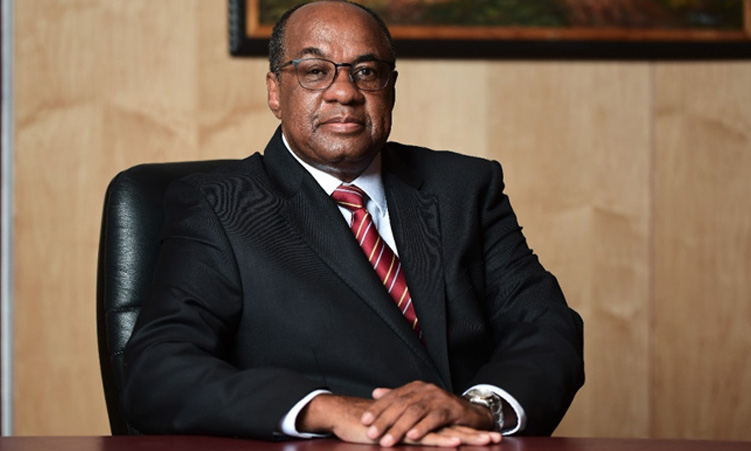Namibian Police chief inspector general Joseph Shikongo yesterday announced that the Anti-Corruption Commission (ACC) and the Financial Intelligence Centre (FIC) would soon begin receiving and analysing information from Interpol on individuals suspected of financing terrorism and engaging in money laundering.
The data exchange is expected to enhance the capacity of both institutions to combat these crimes, which are of great concern to the international community.
This development comes in reaction to reports that Namibia may be sanctioned if it fails to bolster its efforts and legislation to combat money laundering and the bankrolling of terrorist activities.
So far, 11 laws have been found insufficient to combat this, while two new laws would have to be drafted and enacted for Namibia to be safe from being grey listed by the Financial Action Task Force (FATF).
“If these two entities are allowed to have access to the Interpol database, it would enhance the ability to focus the activities on targeting wanted persons and bank accounts linked to suspects,” Shikongo said.
AGREEMENT SIGNED
To fast-track this process, an agreement was signed yesterday, presided over by Shikongo in the presence of central bank governor Johannes !Gawaxab, ACC director general Paulus Noa, and FIC director Leonie Dunn.
!Gawaxab told his counterparts they have to demonstrate the effectiveness of the country’s money laundering and terrorism financing regime for Namibia to be taken seriously.
He also highlighted that an International Monetary Fund (IMF) report has recorded how the grey list has had adverse effects on Botswana’s gross domestic product (GDP) growth.
“This signing ceremony of the memorandum of agreement between the Namibian Police, the FIC and the ACC will allow us to gain electronic access to Interpol’s database i247 to use this information when it is needed,” !Gawaxab said.

The agreement was also signed in the presence of Interpol’s executive committee delegate for Africa, major general Nambili Naenda.
He was elected to the position from Namibia during the 89th Interpol General Assembly in New Delhi in October 2022, according to Shikongo.
Interpol’s executive committee consists of 13 executive members, of which Naenda is one.
“The Interpol executive committee delegate for Africa is from Namibia, and this shows the leading role Namibia continues to take in the expansion of the i247 system in the Southern African Development Community region and Africa as a whole,” Shikongo said.
‘NO FINANCING OF TERRORISM’
Despite deficiencies being spotted in the local legislation, Shikongo said Namibia has not recorded a case of financing terrorism.
Noa said the ACC has been hard at work investigating a massive case of money laundering at the centre of the Fishrot fraud and corruption scandal.
The ACC boss once again called out the Business Intellectual Property Authority (Bipa), and the Namibia Financial Institutions Supervisory Authority (Namfisa), accusing it of being too slow when it comes to providing data on money laundering and the financing of terrorism.
However, Bipa chief executive officer Vivienne Katjiuongua said this can only be done when all stakeholders enact the empowering and necessary legislation.
“This agreement reflects that law-enforcement agencies need to work in unison to efficiently and effectively confront transnational organised and related crimes.
“The expansion of the Interpol information system to criminal investigation authorities is a milestone.
“It resonates with the truth that the world has become a small village, calling for law-enforcement agencies to closely cooperate, otherwise single investigation bodies operating in silos may evaporate and crime will take over. Namibia has to avoid that,” said Noa.
Dunn said the signing of the agreement would strengthen an already existing working relationship between the FIC, the ACC and the Namibian Police.
She said the FIC remains committed to addressing the deficiencies of Namibia’s legislation on money laundering and the financing of terrorism.
“We are happy to be part of this valuable collaboration. This agreement is coming at the perfect time when Namibia has to show the world we are serious about addressing the deficiencies in this mutual evaluation report.
“Domestic collaboration enhances the combating of crime in general, which is good for our country, first and foremost. The Namibian Police and the ACC have been key stakeholders of the FIC in the combating of money laundering, terrorism financing and the financing of proliferation of weapons of mass destruction,” she said.
So far, South Africa and Nigeria are the latest African countries to be added to the grey list, which is compiled by the FATF, as a result of their deficiencies to counter money laundering, terrorism and proliferation of weapons financing.
Stay informed with The Namibian – your source for credible journalism. Get in-depth reporting and opinions for
only N$85 a month. Invest in journalism, invest in democracy –
Subscribe Now!








